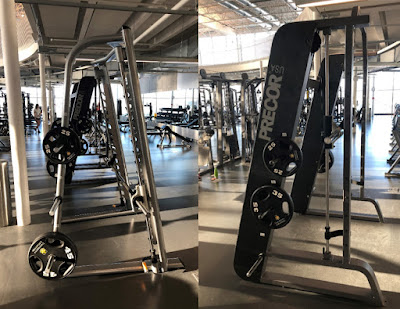Functional fitness to help you stay at your best longer
Effects of Functional Strength Training on Functional Movement and Balance in Middle-Aged Adults
Introduction:
As we get older, our strength often decreases due to changes in our nervous system and loss of muscle tone, making daily activities harder. However, strength training can help by:
FST is gaining popularity among athletes, middle-aged adults, older individuals, and cardiac patients because it improves health, aids in weight control, and enhances the ability to perform daily tasks.
- Reducing the effects of aging on the neuromuscular system.
- Decreasing body fat.
- Maintaining muscle mass, bone density, and muscle strength.
Traditional vs. Functional Strength Training:
Traditional strength training (TST) builds muscle size and strength but doesn't always improve our ability to perform everyday tasks. Functional strength training (FST), on the other hand, focuses on enhancing strength, flexibility, balance, and coordination to improve daily activities.
FST is gaining popularity among athletes, middle-aged adults, older individuals, and cardiac patients because it improves health, aids in weight control, and enhances the ability to perform daily tasks.
Study Overview:
This study utilized a Functional Movement Screen (FMS) to identify movement problems and aimed to investigate how FST affects balance and movement in healthy, independent middle-aged adults.
Participants:
Participants:
Forty-six physically active individuals (24 females, 22 males) who exercised at least three times a week for six months were randomly assigned to two groups:
- Traditional Strength Training (TST): 20 participants (Avg. Age: 52.85±4.01 years).
- Functional Strength Training (FST): 26 participants (Avg. Age: 51±3.73 years).
Methods:
Participants underwent assessments at the beginning and after an eight-week intervention, with key measurements including:1. Functional Movement: Functional Movement Screen (FMS).
2. Balance Control: Balance Error Scoring System (BESS).
3. Height: Clinical stadiometer.
4. Body Weight and Body Fat Ratio: Bioelectric impedance (PlusAvis 333).
Both groups completed 24 training sessions over eight weeks (three days a week), with exercise intensity standardized and gradually increased based on individual performance.
4. Body Weight and Body Fat Ratio: Bioelectric impedance (PlusAvis 333).
Both groups completed 24 training sessions over eight weeks (three days a week), with exercise intensity standardized and gradually increased based on individual performance.
Results:
Changes from Pre to Post Intervention:- FMS Score: TST: -2.5±1.72 | FST: 0.25±0.85
- BESS: TST: 2.46±1.98 | FST: 0.35±0.98
- Body Mass (kg): TST: 2.34±2.27 | FST: 0.5±1.05
- BMI: TST: 0.82±0.79 | FST: 0.25±0.63
- Body Fat %: TST: 3.95±4.1 | FST: 0.32±1.42
Discussion:
FMS Score: Eight weeks of FST improved FMS scores and balance in middle-aged adults, whereas TST had limited effects on functional movement.Fat Mass: FST leads to more muscle activation and higher energy consumption, positively affecting body composition. However, not all studies agree on this point.
Balance and Coordination: The FST group improved their baseline score by 16.49%, compared to a 2.42% improvement in the TST group, consistent with previous studies.
Conclusions:
The study demonstrates that FST positively influences FMS scores and balance in middle-aged adults, enhancing mobility, stability, balance, and strength. Early detection and intervention for movement and balance problems can reduce the risk of disability and falls in older adults, emphasizing the importance of FST for maintaining a healthy and active lifestyle in middle age.Trainer Recommendations:
- Include functional training principles in all strength programs.
- Focus on injury prevention and functional capacity for longevity.
- Contact us to book your functional movement assessment package, which includes a corrective program.
- Inquire about our GRIT group personal training sessions for functional strength training, held on Saturday mornings.
Watch:
Here's a sneak peak of what functional strength training looks like.








Comments
Post a Comment